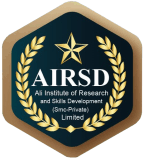Exploring Bioinspired AI for Advanced Cell Labeling: Advancements and Applications in Biomedical Research
Bio-AI in Biomedical Research
Keywords:
Bioinspired Artificial Intelligence, Biomedical Research, Cell Labeling, Bio-AI ModelsAbstract
Context: Bioinspired Artificial Intelligence (Bio-AI) has emerged as a transformative tool in biomedical research, addressing challenges in cell labeling essential for understanding cellular behavior and interactions. Traditional cell labeling methods often struggle with accuracy, scalability, and adaptability in complex datasets.
Objective: This paper theoretically explores the integration of Bio-AI models into cell labeling process. It aims to assess how these models – encompassing neural networks, swarm intelligence, evolutionary algorithms, and self-organizing maps – can enhance cell identification and classification.
Method: The paper examines various Bio-AI models that mimic biological processes such as neural functioning, swarm behavior, and evolutionary dynamics. It also evaluates the application of multimodal AI systems that combine imaging data with molecular and genetic information. In addition, the potential of dynamic cell labeling, inspired by neural plasticity, is discussed.
Result: The integration of Bio-AI models has demonstrated significant improvements in accuracy, adaptability, and scalability for cell labeling. Automated labeling systems minimize human error and enhance reproducibility. Recent advancements in multimodal AI systems have shown promise in combining imaging with genetic and molecular data, providing more comprehensive insights into cellular behavior. Dynamic labeling models inspired by neural plasticity offer enhanced tracking of cellular transitions over time.
Conclusion: Bio-AI holds transformative potential in biomedical research via enabling real-time, dynamic labeling, essential for tracking cellular changes over time in processes like cancer progression, stem cell differentiation, and immune response. The continued evolution of these AI-driven approaches is expected to accelerate breakthroughs in understanding diseases, tissue engineering, and regenerative medicine.







